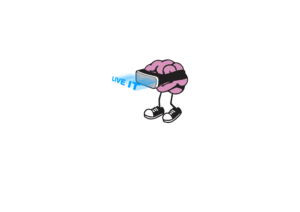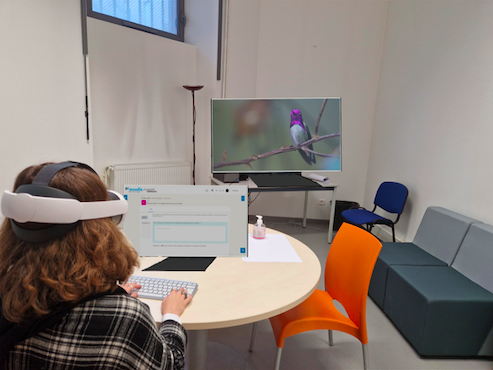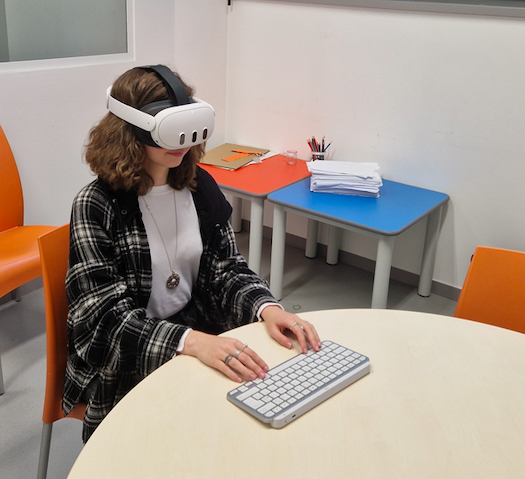The Live-It project explores the potential of augmented reality to better communicate about schizophrenia spectrum disorders. The main target audience is mental health students.
Live-It is a collaborative project between Inria (Bivwac team) and the University of Bordeaux (LabPsy, RAHP team).
Picture: A student testing the Live-It device. She must complete a task on a virtual computer (homework) while experiencing symptoms of schizophrenia.
Schizophrenia is a severe, chronic mental disorder, most often characterised by hallucinations, derealisation and delusions. According to the WHO, It is the 8th leading cause of disability in the 15-44 age group, ahead of several major medical conditions such as cancer and asthma. Stigma is one of the main determinants of this so-called mental disability, particularly through the restriction of participation linked to discrimination, and represents a global public health issue. Mental health professionals are at the heart of this issue, especially because they are the main source of stigma reported by people with schizophrenia and their families. A recent study also that the stigma of psychiatric illness is already present among students. Improving the training of future professionals is therefore at the heart of the issue of destigmatisation. of the problem of destigmatising mental health practices.
To address this issue, we wish to use the potential of immersive augmented reality (AR) experiences based on a headset (e.g. HoloLens), audio headphones, and potentially additional vibrotactile effectors, during which symptoms of schizophrenia through digital distortions of the physical world. distortions of the physical world. We also want to ‘make visible’ to participants the stimuli that the user is experiencing. In this way, they be able to see the behavioural changes in the user, for whom the experience the experience seems real.
Photo: A student testing the Live-It device. She is equipped with an augmented reality headset and a Bluetooth keyboard.
The main hypothesis of the project is that guided immersion in augmented reality within the symptomatological phenomena of schizophrenia promotes, via various psychological mechanisms, the destigmatisation of the condition among health students.
To contact us : emma.tison@u-bordeaux.fr





